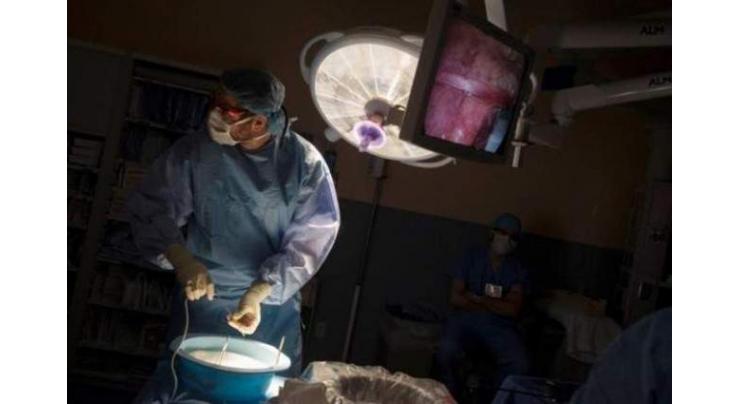
Health Experts For Creating Awareness On Hepatitis
Mohammad Ali (@ChaudhryMAli88) Published July 27, 2017 | 07:05 PM

RAWALPINDI, (UrduPoint / Pakistan Point News - 27th Jul, 2017 ) : Health experts Thursday said that Viral Hepatitis, both the Acute and Chronic Hepatitis are a major cause of death worldwide, accounting for more than 1.3 million deaths.
They were addressing a seminar here organized by Pakistan Society of study of Liver Diseases (PSSLD) in collaboration with the Pakistan Association of Family Physicians (PAFP) to commemorate the World Hepatitis Day.
They said that to increase the awareness about hepatitis, the WHO has endorsed this day, the 28h of July as the World Hepatitis Day, which is only one of the four days named for a disease throughout the year.
They said that unfortunately people are not aware of the magnitude of the problem, and the precautions needed to prevent this disease. Gastroenterologist, Prof Muzafar Latif Gill talked about the different aspects of the common liver disorders.
He informed the public about the chronic hepatitides B and C. They are called the silent killers because most of the infected people never know about their disease status until too late, he added.
He said that without causing much distress to the patient the diseases can reach a stage where treatment may become impossible or at least very difficult. He said that both these viruses are transmitted by infected blood and reuse of needles and piercing tools for the ladies nose and ear and the shaving razors for men are the major source for the spread of infection.
He said that an effective vaccine is available for Hepatitis B but none for hepatitis C. Medical therapy is possible but fraught with costs, expensive and repeated blood tests, side effects and failures,he added.
Prof Masood Siddiq informed about the prevalence of the liver diseases in Pakistan, appraising the public to the magnitude of the problem and the tremendous effort it would need for the government and the doctor community to bring the liver diseases in control.
He said that efforts are needed to comply with the WHO recommendation of eradicating hepatitis by the year 2030.
He added about 2.5 to 4% of the general population suffers from Hepatitis B and the prevalence of Hepatitis C is even more common affecting about 5 to 6% of the general population.
He said that even more common is the Hepatitis A which affects nearly 90% of the children by the age 15 years. Controlling them would need universal vaccination and supply of potable water to the masses, in addition to the proper disposal of used needles and an absolute ban on reuse of instruments like shaving razors and piercing tools for the girls.
Dr Junaid Saleem said that acute Hepatitis is caused by two viruses, namely Hepatitis A and E. Hepatitis A is the disease of the young, and most people by the age 15 have evidence of previous infection and immunity already in their bodies, he added.
He said that an effective vaccine is available and can be given to children to prevent the occurrence of the disease. Hepatitis E on the other hand occurs later in life an usually affects young adults, he added.
He said that both these viruses are spread via contaminated drinking water. In the absence of reliably clean drinking water out of the tap, the only effective means is to boil the water for at least a minute.
Dr Amjad Salamat was next and talked to the assembly about the complications of the chronic hepatitides B and C. He said that complications may be the first presentation of the disease and can even be life threatening.
It is possible but difficult to treat complications and prevention remains the best cure. He said that by the time complications develop nearly 60 to 70% of the liver has already been knocked off by the disease - often silently, and the treating doctor now faces the patient with swollen abdomen with water, or bleeding from stomach or sometimes with a cancer in the liver.
The seminar was attended by general public, patients of hepatitis, young doctors and medical students, and nurses. The seminar was also addressed by two patients who narrated their personal fight with the disease and how they succeeded in overcoming the odds.
Related Topics
Recent Stories

Lacking storm drains, Dubai sees persistent flooding

West Bank villagers vigilant but vulnerable after settler attacks

Sindh to upgrade primary schools to reduce dropout rate

Calls for calm after reported Israeli strike on Iran

PTF meeting for polio eradication held

Emaan Pakistan Eid-Mela inaugurated

BISP cash disbursement center set up

DC chairs meeting regarding polio drive in Jhal Magsi

Stormy weather ravages Bahawalnagar's Cholistan areas

Punjab Music Competition schedule released

Mayor LMC chairs council meeting

Pakistan Navy rescue, relief operation continue in rain hit Gwadar, Ormara areas
More Stories From Pakistan
-

PTF meeting for polio eradication held
1 minute ago -

Emaan Pakistan Eid-Mela inaugurated
2 minutes ago -

BISP cash disbursement center set up
6 minutes ago -

DC chairs meeting regarding polio drive in Jhal Magsi
6 minutes ago -

Stormy weather ravages Bahawalnagar's Cholistan areas
6 minutes ago -

Punjab Music Competition schedule released
6 minutes ago
-

Mayor LMC chairs council meeting
6 minutes ago -

Pakistan Navy rescue, relief operation continue in rain hit Gwadar, Ormara areas
18 minutes ago -

LHC orders replacement of three environment officers
18 minutes ago -

Southern Punjab lawyers request CJP to conduct cases through video link in Multan
18 minutes ago -

Azerbaijan Ambassador calls on Sindh Governor
11 minutes ago -

Reconciliation in politics is the need of the hour: Irfan Siddiqui
19 minutes ago











